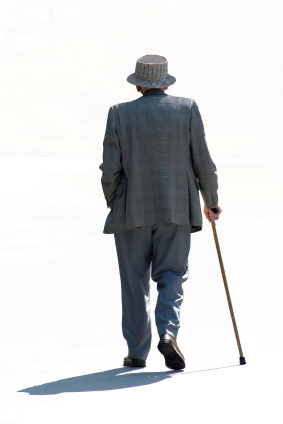The psychology of falls in long-term care (McKnight’s LTC News)
Here’s my latest article on McKnight’s Long-Term Care News:
The Psychology of Falls in LTC
According to the American Geriatrics Society, one in three adults over the age of 65 falls each year. Falls represent the leading cause of fatal and nonfatal injuries among older adults. You might be surprised to hear some of the contributing factors of falls and the psychology behind them. I also have advice on ways residents and staff can reduce the likelihood of falls.
Factors associated with falling
Falls are caused by many different influences, often in combination. Some common elements (1) include:
- Medication — the major contributors are psychotropics (especially benzodiazepines, antidepressants, and antipsychotics), medications that reduce blood pressure and anticonvulsants
- Polypharmacy — one study found a 14% increase in fall risk with the addition of each medication beyond a four-medication regime, regardless of the group of drugs studied
- Orthostatic hypotension — researchers noted a 69% increased risk of having an injurious fall during the first 45 days following antihypertensive treatment
- Alcohol abuse
- Diabetes mellitus
- Confusion and cognitive impairment
- Gait and balance disorders
- Muscle weakness
- Poor vision
- Urinary incontinence
- Inappropriate footwear
- Environmental factors including home hazards
Impact of falls for residents
Falls can have a huge effect on the quality of life of our elders, who may have diminished mobility following an injurious fall. One-third of those who have fallen develop a fear of falling again and often reduce their activities in order to decrease the likelihood of similar mishaps. For those who have fallen in a facility, staff may limit the resident’s activities. Restricted activities, whether self-imposed or enforced by others, can contribute to depression. As noted above however, prescribing anti-depressants can increase the risk of future falls.
Concealed falls
Due to fear that their independence will be limited, some elders may hide the fact they’ve fallen. Residents have confessed past falls to me in their psychotherapy sessions, saying they were afraid they’d be forced into a wheelchair if anyone knew, or that they wouldn’t be allowed to go home after rehab. Psychotherapy might focus on the toll of untreated injuries due to silence following a harmful fall, whether or not returning home is realistic, or on ways to safely manage the activity that led to the fall.
(1) http://www.patient.co.uk/doctor/prevention-of-falls-in-the-elderly-pro
For the entire article, visit:
The Psychology of Falls in LTC


